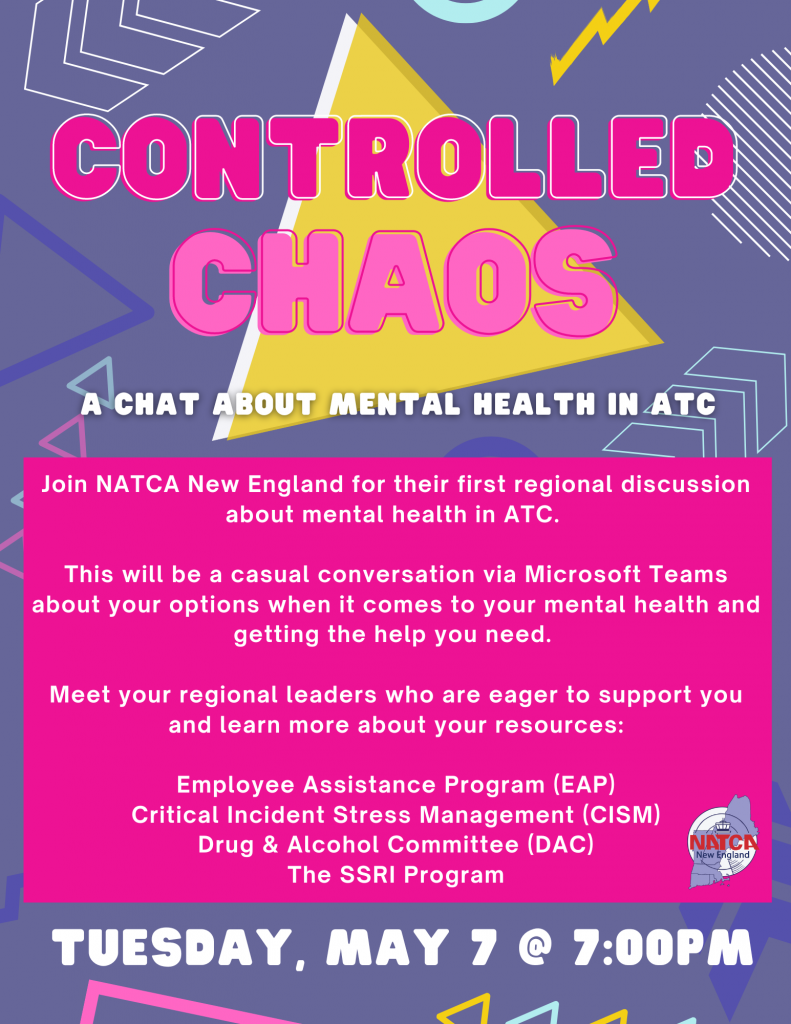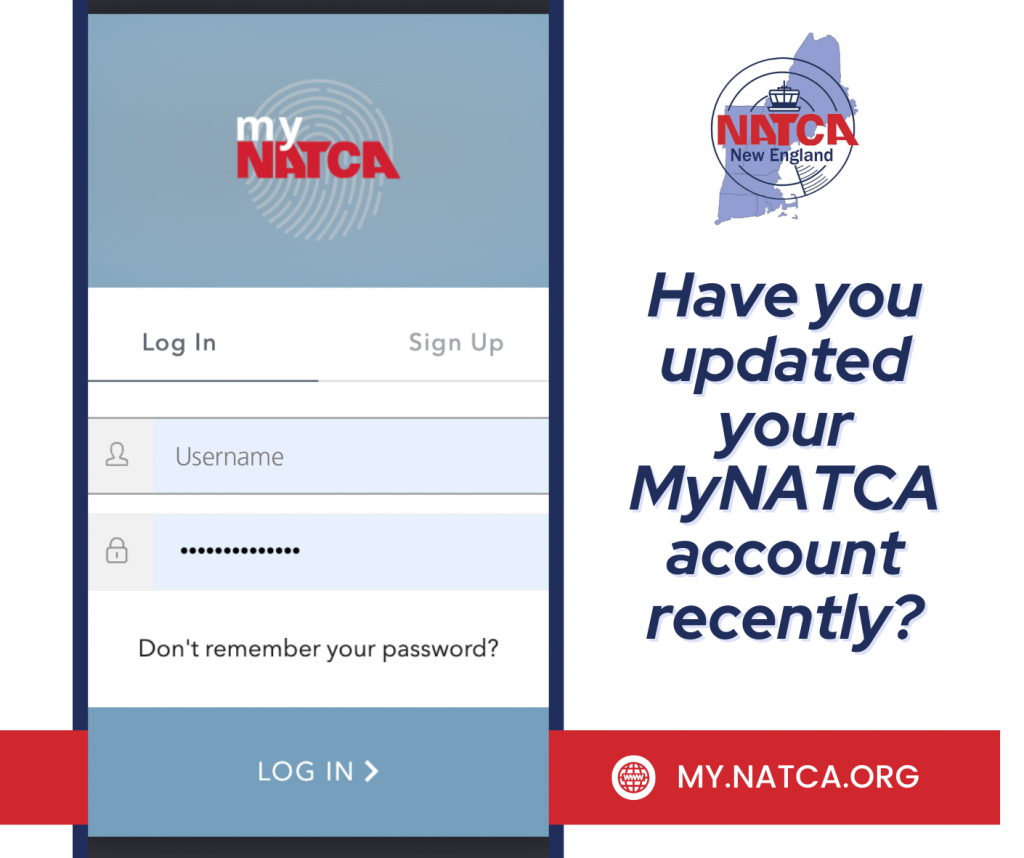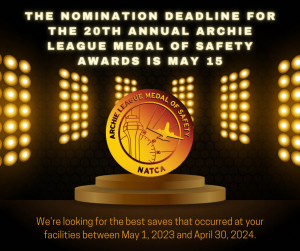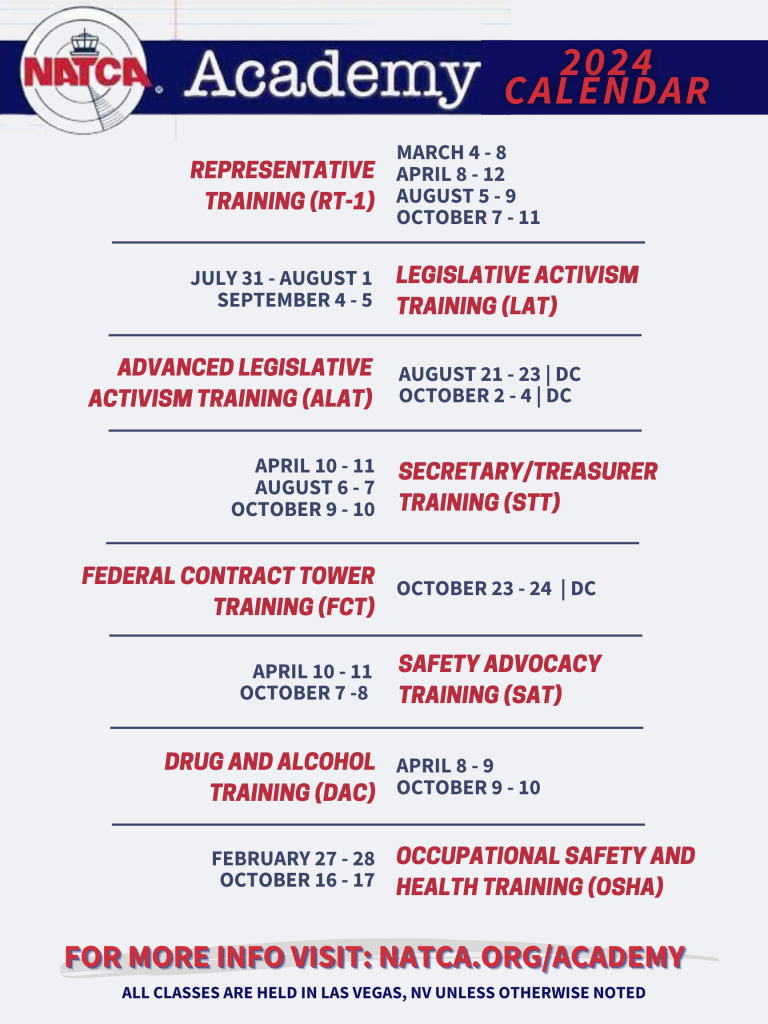
March 2024 New England Bi-Monthly Regional Update #2
From Bryan Krampovitis, NATCA New England ARVP

Official Time: Understanding Its Importance
What is official time? While many may think of it as the time union representatives use to prepare for meetings (“Rep time”, “NATCA time”, or “Article 2 time”), official time encompasses much more than that.
Official time is any time an employee spends representing the union or its members to management while on government time. This is in contrast to the private sector, where union officials are generally not paid by their employer to represent the union or individual bargaining unit employees. In the private sector, all representation of employees is typically done at the union’s expense. For example, when an employee files a grievance, the union will clock out onto a “union timecard” to present the grievance with the employee. The company will then bill the union for all time spent clocked onto a “union timecard” at the end of the month.
In the federal workforce, unions are required to represent all employees of a bargaining unit, whether they pay dues or not. This is why official time is necessary for unions. Without official time, if the union had to repay the government for time spent representing non-members, the union could easily be overwhelmed financially by non-dues payers filing grievances. This is just one example of how official time is crucial for unions to be effective within the federal workforce. Official time isn’t just the time your Reps spend via Article 2 of our slate book contract on their “Rep time”; it is any time they are on government time, representing either the union or an employee to the agency.
Why is it important for everyone to understand what official time is? Since its inception, official time has been under constant attack by groups that believe federal sector unions shouldn’t exist. They don’t believe federal employees have the right to representation, and they definitely don’t believe the government should bear any costs associated with that right. Over the years, there have been numerous attacks on official time, with proposed laws to limit or remove it and executive orders to limit official time to fractions of what is currently allowed by law and only for purposes the government deems appropriate.
A change or reduction in official time would mean Representatives would have to “clock out” of work to represent our members. This would require the union to directly reimburse the Rep for that time, reimburse the agency for time spent representing the members, or expect a Rep to do their representation duties outside of working hours and without compensation. Any of these options would severely limit or reduce the quality of representation this union provides for our members. An alternate scenario would require the union to hire employees to take on these representation duties, likely associated with a change in dues to cover these increased costs.
I am highlighting this topic for my monthly update because often when subjects like official time come up due to a proposal to change it, we don’t understand the full implications of the change. I have heard comments like, “So what if a Rep doesn’t get their NATCA time?” I am highlighting it this month so that if and when it comes up in the future, you have a full understanding that changing or limiting the use of official time won’t just affect the time your Rep has to prepare for their meetings with management; it will fully affect the time and quality of the representation this union can provide our membership for all topics, including grievances, employee investigations, MOU negotiations, contract negotiations, and in general, any time provided for the union to represent you or the membership as a whole to the agency.
Mental Health in ATC
From Jim Basford, NATCA New England Drug & Alcohol Rep, A90
READ ME! THIS IS THE MOST IMPORTANT SECTION OF THIS ENTIRE DAMN EMAIL!

I apologize for breaking decorum, but this issue is important to us and we need to change how we think about it. It is a matter of life and death. We have lots of important issues, pay, staffing, training, and funding. The one common denominator is they impact our collective mental health. In 2023, we had 4 controllers take their own lives. This year, we have had two already by the beginning of March. If we were a simple cross-section of the US population statistically we should have 2 per year.
But wait, we are thoroughly screened for medical conditions, no? So shouldn’t we have a lower rate? I mean, we don’t have controllers with a history of Schizophrenia, Bipolar disorder, Borderline Personality Disorder, or substance abuse, right? Then why are we 100% ABOVE (or double) the average?
Our society places a huge stigma on male emotional vulnerability. Perhaps this is one of those moments to lead by example so I will share something about my past. In first grade, I was identified by Brockton Public Schools as gifted and talented. My parents opted to keep me in mainstream classes for the social aspect. Math and numbers have always been second nature to me, I just visualize them differently than most. I don’t think I need to tell you how that went for a kid with my last name who didn’t get anything below 100% on a math quiz or exam until 8th grade growing up. The real trauma though hit this past October. As some of you are aware, A90 OM Barrett Brown lost his battle with depression. Why would a Rep care about an OM? Our daughters are friends. They play lacrosse together, they were in Nashua North’s musical production of Elf last fall. During hell week for the production, Barrett’s daughter came up to me after rehearsal with tears streaming down her face and sobbed, “I just wish he was gonna see me perform.” That is a pain I never want to feel again.
In the weeks following Barrett’s death, I ran to my comfort zone, numbers. I felt we were above average in suicides and we are. Some other numbers derived that set me back. Based on CDC data and assuming 14,000 controllers, 509 controllers nationwide have seriously thought about suicide. Beyond that, this means 144 CONTROLLERS NATIONWIDE HAVE MADE A PLAN TO COMMIT SUICIDE. These numbers are based on the average, not our 100% above-average rate from last year. Unfortunately for me, I can’t forget or un-see those numbers.
So what do we do about it? To quote the band The Fray, “Step one, you say we need to talk.” During the first week of Mental Health Awareness Month, on May 7th at 7:00 pm, we will launch “Controlled Chaos”, an online NATCA New England discussion about mental health. We would like this to be a recurring virtual discussion and possibly lead to in-person events. We will have Reps from NATCA’s Drug & Alcohol Committee (DAC), Critical Incident Stress Management (CISM), Employee Assistance Program (EAP), and a current NATCA member going through the SSRI program.

I don’t want this to be a briefing but an open discussion. I want us to be a sounding board if members need us and get them help if they need it, and I also want to hear ideas from the membership on how we can make it better. Ultimately, this is a huge challenge and I need as much help with this as possible, so I hope you will add this to your calendar and participate.
Thanks for reading to the end, and if you find yourself in a dark place please reach out to me at 603-203-9945 or [email protected].
Collaboration
From Curt Fischer, Collaboration Facilitator, Eastern Service Area North, A90

Over the past few years at the conclusion of Collaboration Skills Training or CST, Collaboration Facilitators would drive the message home that collaboration gets better results by solving a fictional problem to reenforce the concept. Well, as our collaborative culture has grown over the years, we have found that the vast majority of leaders/decision-makers understand this concept, with most agreeing that a collaborative approach is the preferred method to get better results (in addition to being required contractually).
But simply knowing that collaboration works is different than successfully using collaborative skills as intended. Time and again we find that real-world obstacles arise to derail successful collaboration.
As decision-makers, we must continue to flex our collaborative muscles or like any learned skill risk losing our abilities. Obstacles are numerous. Perhaps it is a lack of staffing. Maybe it is a mandate from above. We continue to see problems approached with a predetermined outcome or forgetting to treat each other as equal participants. Whatever the reason, even after taking a two day class on collaboration, we find that our new collaborative exercise challenges the most well-meaning seemingly collaborative leaders. It is comparable to stepping in front of a fastball, knowing the pitch is coming, and still failing to connect.
Sometimes it is seen as easier to simply go back to our corners and abandon the collaborative approach when these obstacles arise. Other times people hold fast to their positions regardless of the outcome. If you see this happening to you, before you say the heck with it, contact your CF team and get our take on the situation. Hopefully, you will see the benefits and be able to say that you were glad you stuck with it.
Training
From Karen MacCrate, NATCA New England Training Rep, ZBW

Hello NATCA New England! With it being pretty slow this time of year, facilities are using this time to do recurrent/refresher training, and other training that is difficult to facilitate during summer months. We are also over 100% as a district for the National Training Initiative (NTI). Great job to all of you!
There has been an update to all Terminal stages 2-5 course material. Facilities have until April 19th to update their local classes with the new material. I have been working with the agency to help facilities implement this change.
The tentative date for the implementation of the new training order, JO 3120.4S is April 30, 2024. As always, these dates are very fluid, but we can expect the updated order soon. There will likely be a lot to update locally to align with the .4S, so you can expect updated local orders in the next several months as well.
As always, if you have any questions or concerns, please feel free to reach out to me anytime at [email protected].
Update your MyNATCA

MyNATCA is the system that contains your contact information such as your mailing address, phone number, and email. You can also enter communication preferences, your spouse’s name, and even your shirt size. By keeping your MyNATCA information up to date, you will ensure you are receiving the most up-to-date information from NATCA.
NATCA utilizes this information for sending out updated Constitutions, Convention materials, and more. Your MyNATCA preferred email address is where you will receive updates from NATCA National and your Local’s listserve. Your contact information is also utilized for the preparation and dissemination of ballots in the upcoming NATCA national election. If you want to have your voice heard, it is critical that NATCA has a way to contact you.
Thank you for taking the time to update your MyNATCA profile! There are two ways to access MyNATCA:
1) Go to https://my.natca.org and log in.
2) Through the NATCA Website: https://www.natca.org. Click the “Members Home” link at the upper right corner. This will take you to a login page where you can enter your username and password for your account. Hover over “My Account” in the upper right-hand corner and click “Profile” to access MyNATCA.
Announcements and Information

Registration is open now for NATCA Charitable Foundation’s annual Step Challenge which will run from March 20 – May 3, 2024.
The registration fee is $25 per person. You can create a team (consisting of a minimum of 2 people) and challenge other teams across the country! Step counts for groups are calculated by the average of all participants to keep it fair. You can also do the challenge solo and compete amongst other members and/or yourself!
NCF will donate $7,350 in total to a charity of choice (pending NCF board approval) of the top 3 teams, top 3 individual steppers, and 4 random drawings throughout the challenge.
Registration link to donate is https://igfn.us/form/fSW7aA. You can also sign up by texting NCFSTEP to 41444 which also brings you to the registration site. The step challenge will be tracked on the platform MoveSpring.
If you have any questions, you can contact Jason Boyde of the NCF at [email protected].

Do you know a NATCA member who represents professionalism to you and stands out as an example for the positive impact they make in their job?
If so, now is the time to recognize that individual for their ability to bring honor and respect to their job by nominating them for the NATCA National Professionalism Award.
Each year, NATCA recognizes one recipient from each FAA Service Area, a minimum of 3 individuals, who go above and beyond to demonstrate professionalism through their commitment to safety and upholding the public’s trust in our work.
Nominations are open now through June 1, 2024. The awards will be given out at Communicating for Safety (CFS)- next year’s event will be held September 16-18, 2024.
The nomination form and more information on NATCA’s Professional Standards Committee can be found at https://natca.org/committees/ps/

NATCA is currently accepting nominations for the 20th Archie League Medal of Safety Awards!
Events must occur between May 1, 2023, and April 30, 2024. Any member may nominate another member for an Archie League Medal of Safety Award. The awards will be presented in September during the Communicating for Safety conference in Las Vegas.
Click here for the nomination form.
If you have questions or are having trouble collecting all nomination materials, please contact [email protected].
Interested in learning about ways you can get involved and help other NATCA members? How about taking a NATCA Academy class? All of these classes offer great opportunities to learn more about NATCA and how our union works for its members!
Visit www.natca.org/academy to learn more about each of the courses and https://portal.natca.org to sign up!


